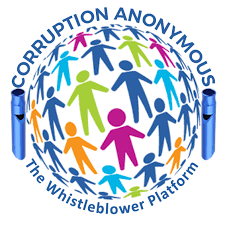The African Centre for Media and Information Literacy (AFRICMIL) has begun a survey to assess the impact of the whistleblowing policy introduced in December 2016 by the government of Nigeria.
The survey is being conducted in six states across the six geo-political zones and Abuja. The states are Lagos and Oyo (South-West), Rivers (South-South), Imo (South-East), Adamawa (North-East), Kano (North-West) and Abuja (North-Central).
The survey targets 7,000 respondents from the six states and the Federal Capital Territory. It will involve key informant interviews with revenue-generating MDAs, anti-graft agencies, media, civil society groups and other stakeholders. It will also feature online responses from the public, including professionals, youths, students, academic institutions, artisans, market women, religious leaders and organized labour.
According to Chido Onumah, Coordinator of AFRICMIL, “The goal of the survey is to strengthen whistleblowing and make it an acceptable tool for exposing corruption and other wrongdoings in the society. We would like to know, for example, why people are willing or not willing to blow the whistle.”
The survey will catalogue the impact of the whistleblowing policy in addressing corrupt practices in Nigeria. Although government had continually urged citizens to complement its effort by playing active role in the anti-corruption war, it had not consciously enlisted citizens’ support in the anti-corruption war.
“The whistleblowing initiative is the first time government would be using a policy instrument to ask for citizens’ participation in the war against corruption,” said Onumah. “It represents a unique opportunity for Nigerians and civil society elements to take the front seat in prosecuting the fight against corruption by reporting corrupt activities and sustaining the pressure to ensure action is taken.”
On what the Centre expects from the project, Onumah noted: “The most important thing AFRICMIL expects to learn from this project is to see how whistleblowing will change the face of Nigeria’s fight against corruption. In the main, we would like to learn the impact of the complementary role of the online platform, Corruption Anonymous, to the whistleblowing policy of government.
“We would like to experience the impact of AFRICMIL’s activities in terms of scope, acceptability, effectiveness, and the general attitude of citizens towards the idea of reporting retail and grand corruption as well as blowing the whistle on malfeasance generally in the public and private sector anonymously. “Similarly, it will be interesting to learn how, and under what condition if any, citizens will subscribe to this initiative and therefore champion the fight against corruption. Another area of interest will be the effect of the synergy between government, civil society, and the media in the fight against corruption. This is the first time these three sectors will be combining to act against corruption, hence the importance of this survey.”
Since the beginning of the CORA project, which is supported by The John D. and Catherine T. MacArthur Foundation, AFRICMIL has carried out several activities across the country and recorded some successes in its interface with the whistleblowing policy. These successes include increased public awareness about whistleblowing, recoveries by the Presidential Initiative on Continuous Audit (PICA) and Anti-Corruption Agencies (ACAs), increased interest by Nigerians in joining the fight against corruption using the whistleblowing window, and support for victimized whistleblowers.
The survey, which is being handled by PrinceCrown Impact Management Consult, is scheduled to last for two months. The outcome will shape the narrative on the role of whistleblowing in the fight against corruption in the country.
